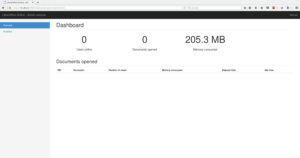I took some time to set up the environment to forward the Zope server port to my local box. Because I want to log into the Zope Management Interface with the permissions of an admin user I had add one first to the Zope instance. I run the debug instance of the Plone CMS with the command ‘adduser <adminusername> <password>’ for this purpose.
Then I started the debug-instance with the command ‘fg’. Once the debug-instance ran in forground (fg) mode, I started the forwarding within a terminal on my local box:
$ ssh -L 8085:localhost:8085 -N <server_name> -v
The <server-name> is the login to the server, whose port I wanted to forward.
The I could reach the forwarded server port in my browser with: http://localhost:8085/manage
This pointed me to the login of the root of the Zope instance and the ZMI. There I could login with the newly created admin user.


